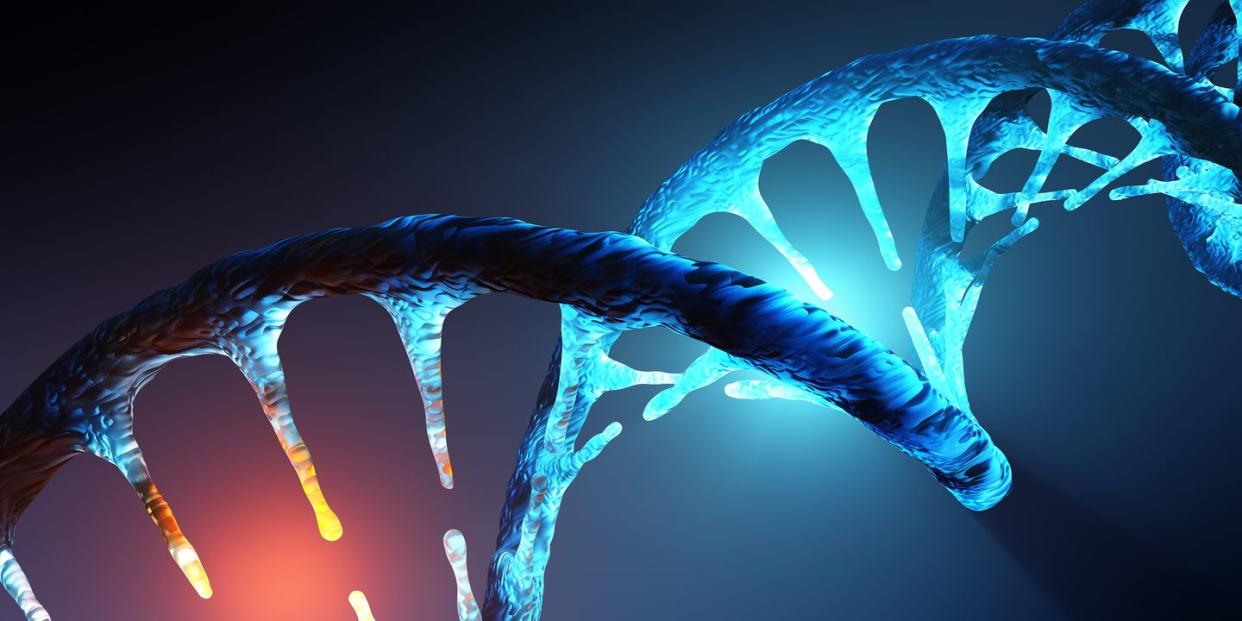Could a Diet Based on Your Genes Actually Work?

Could your genes be responsible for weight gain?
And, if so, does that mean that you should adjust what you eat, and how much, according to your DNA?
Several companies argue that gene-based diets are the answer. Here are the details.
The Claim:
With a quick cheek swab (and a payment of a couple hundred bucks), you receive a personalized nutrition plan based on your DNA. Follow it and you’ll feel great, lose weight, have more energy, and achieve mental clarity.
Who Sells Them:
Diet by Biomarker, Profile, Nutrigenomix, DNAFit, VitaGene, Habit
What the Experts Say:
“The basis of these companies is that we know there are genetic variants that influence how a person responds to a particular food,” explains David Mutch, Ph.D., professor of nutrigenomics at University of Guelph. But there's a catch. Science can’t definitively say how two people with different variants of one gene will respond differently to changes in diets, Mutch says.
Plus, the genetic-based kits do not assess gene variants that would matter anyway, says Paul Franks, Ph.D., professor of genetic epidemiology at Lund University.
The Verdict:
They're bunk-and expensive bunk, at that.
“These kits measure the common genetic markers of protein and fat intake, but these have no real relevance at an individual level,” Franks says. A 2018 study published in JAMA concluded that genes were unable to predict whether a low-fat or low-carb diet was better at helping participants lose weight.
Take the money you’d spend on the kit and invest in some fruits and vegetables, instead.
('You Might Also Like',)
